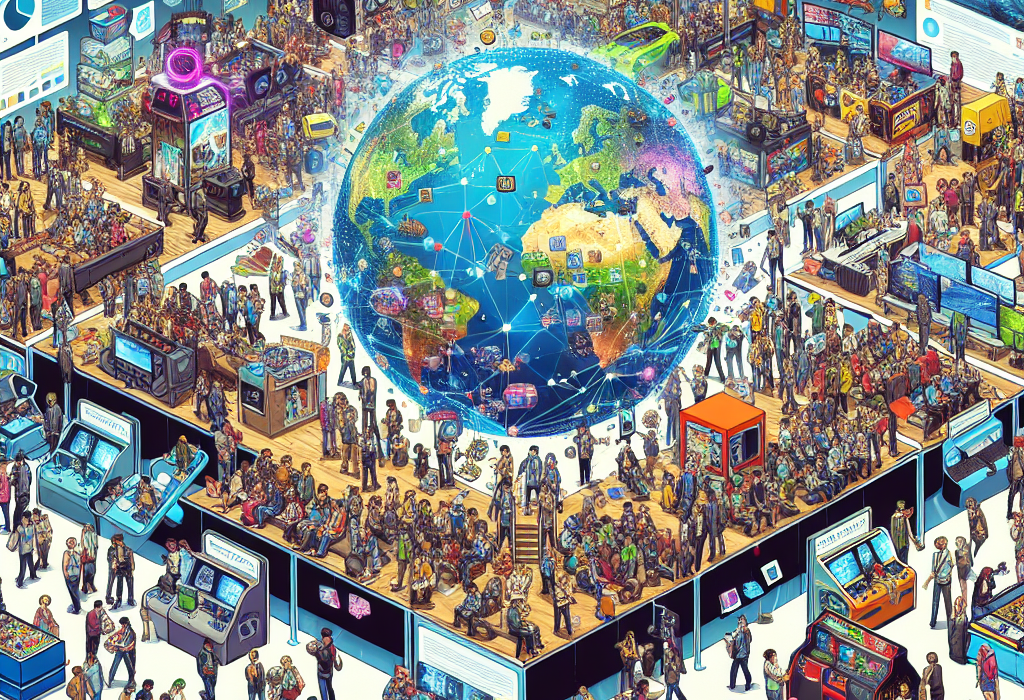The dynamic and immersive nature of video games has long been captivating audiences around the globe. From humble beginnings in arcades to the vast virtual universes of today, video game culture has evolved into a multifaceted phenomenon influencing countless aspects of entertainment, social interaction, and even professional endeavors. Let’s dive into the ever-changing world of video game culture and trends, to better understand this powerful medium’s impact.
The Evolution of Video Game Culture
From Arcades to Consoles
The journey of video games began in the late 20th century with simple arcade games like "Pong" and "Space Invaders." These were more than just games; they created social hubs where people gathered to challenge each other and share experiences. The transition to home consoles, exemplified by the Atari 2600 and Nintendo Entertainment System (NES), brought video gaming into living rooms, allowing for longer gameplay sessions and more complex storylines.
Rise of Online Gaming
The advent of the internet revolutionized gaming once again. Multiplayer online games such as "World of Warcraft" and "Counter-Strike" fostered global communities where players could cooperate or compete regardless of their physical location. This era gave rise to what we now call "eSports," where professional gamers compete for substantial prizes and global recognition.
Mobile and Casual Gaming
The introduction of smartphones brought gaming to an even broader audience. Titles like "Angry Birds" and "Candy Crush Saga" demonstrated that casual games could achieve massive popularity, engaging individuals who might never have considered themselves gamers before. This shift broadened the demographic of the gaming community, making it more inclusive than ever.
Current Trends in Video Game Culture
Streaming and Content Creation
Platforms like Twitch and YouTube have given rise to a new breed of content creators who stream their gameplay, offer tutorials, and engage with their audience in real-time. This trend has transformed casual gamers into celebrities and influencers with devoted fanbases. Moreover, game developers are increasingly leveraging these platforms to promote their games and engage with their community directly.
Virtual Reality and Augmented Reality
The promise of immersive experiences through Virtual Reality (VR) and Augmented Reality (AR) is reshaping our understanding of what video games can be. Games like "Beat Saber" and "Pokémon GO" offer players the chance to interact with digital environments in unprecedented ways, enhancing the immersion factor and creating novel gameplay experiences.
Narrative and Emotional Depth
Modern video games are increasingly focusing on rich narratives and emotional storytelling. Titles like "The Last of Us" and "Celeste" are not only known for their gameplay mechanics but also for their emotional depth and ability to tell compelling stories. These games challenge the notion that video games are merely for entertainment, asserting their place as a legitimate form of art and storytelling.
The Social and Psychological Impact
Community Building
Video games have always been about more than just playing; they’re also about community. Games encourage collaborative problem-solving and build social bonds. Multiplayer games, online forums, and fan conventions allow players to connect over shared interests and experiences, forming tight-knit communities.
Mental Health Benefits
Recent studies suggest that video games can offer mental health benefits, serving as a form of stress relief and even therapeutic intervention. Games like "Animal Crossing: New Horizons" gained significant attention during the COVID-19 pandemic as a calming, escapist experience that helped many individuals cope with feelings of isolation and anxiety.
Potential Downsides
However, it’s also important to acknowledge the downsides. Issues like gaming addiction, online harassment, and toxic behavior within gaming communities are ongoing challenges that need addressing. Developers and community leaders are continuously working to create safer, more inclusive environments for all players.
Future Trends
AI and Machine Learning
Artificial Intelligence (AI) is poised to revolutionize gaming yet again. AI can be used to create more realistic Non-Playable Characters (NPCs) and adaptive game environments that respond dynamically to player actions, providing a more personalized and engaging experience.
Cross-Platform Play
Cross-platform play is increasingly being adopted, allowing gamers to play together regardless of the console or device they own. This trend is breaking down barriers between gaming communities and making games more accessible than ever.
Accessibility Features
There is a growing emphasis on making games accessible to everyone, including those with disabilities. Features like customizable controls, text-to-speech options, and colorblind modes are becoming standard, ensuring that more people can enjoy gaming experiences.
Conclusion
The world of video game culture is ever-evolving, driven by technological advancements and changing player dynamics. It’s a powerful medium that continues to shape entertainment, social connections, and even professional landscapes. As we look to the future, one thing is certain: video games will remain a central pillar of our cultural framework, influencing how we play, learn, and connect with one another.
Whether you’re a casual gamer or a dedicated enthusiast, the world of video games offers something for everyone. And as the industry continues to grow and innovate, the only limit is our imagination.
















Leave feedback about this
You must be logged in to post a comment.